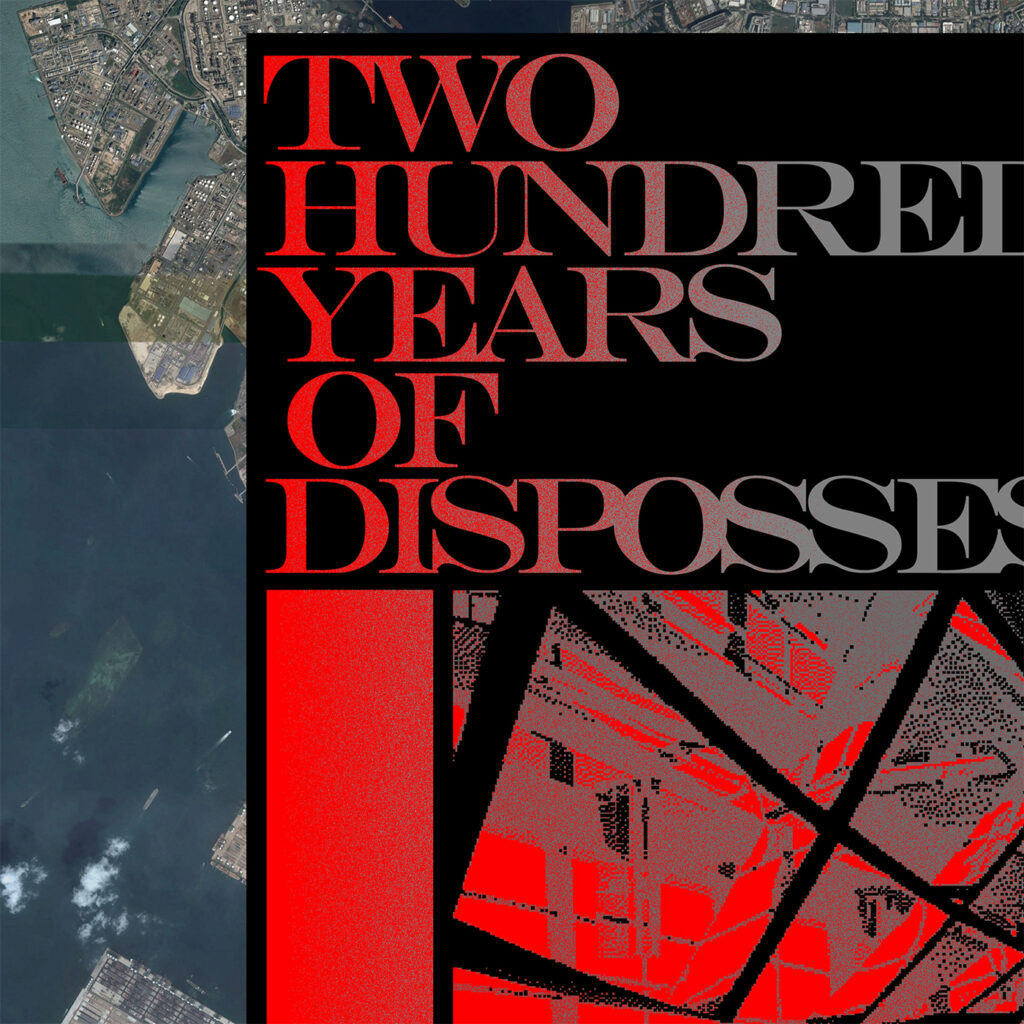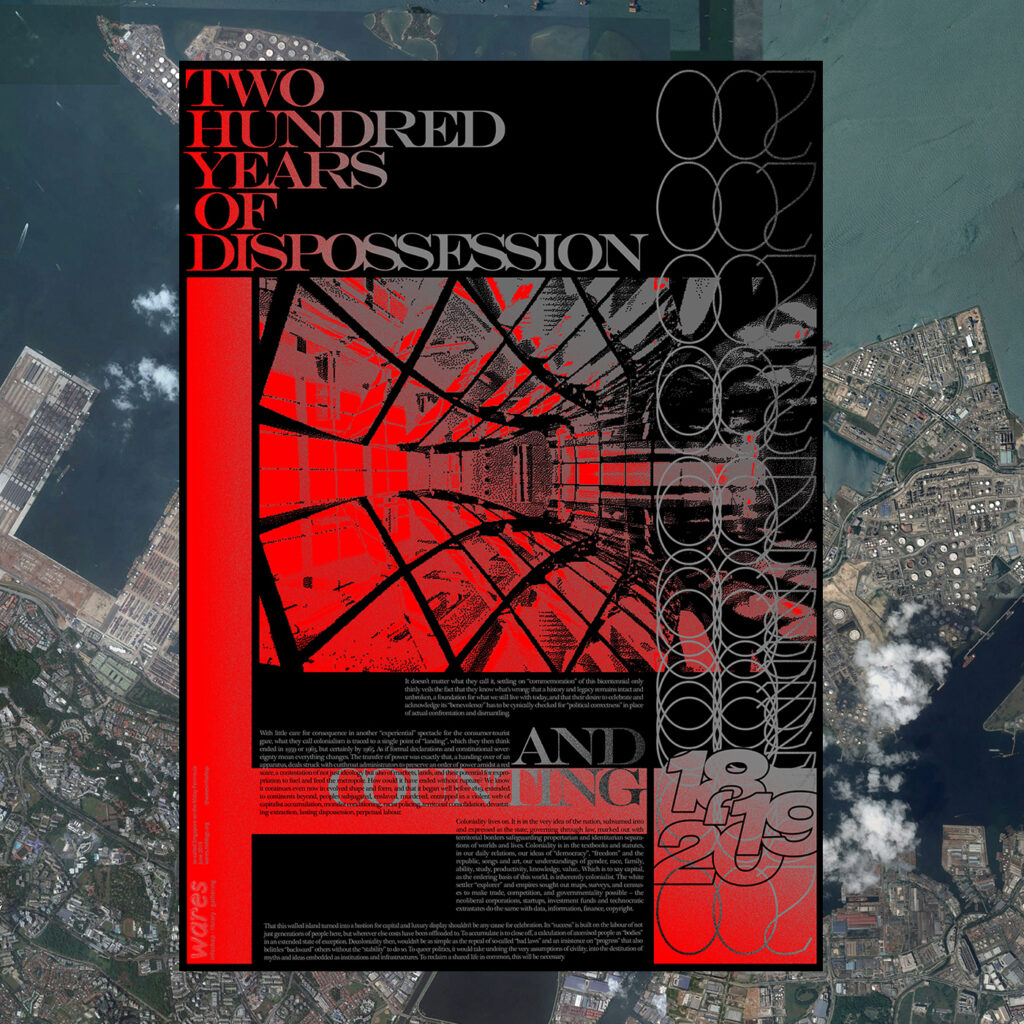Two Hundred Years of Dispossession
And Counting
It doesn’t matter what they call it, settling on “commemoration” of this bicentennial only thinly veils the fact that they know what's wrong: that a history and legacy remains intact and unbroken, a foundation for what we still live with today, and that their desire to celebrate and acknowledge its “benevolence” has to be cynically checked for “political correctness” in place of actual confrontation and dismantling.

With little care for consequence in another “experiential” spectacle for the consumer-tourist gaze, what they call colonialism is traced to a single point of “landing”, which they then think ended in 1959 or 1963, but certainly by 1965. As if formal declarations and constitutional sovereignty mean everything changes. The transfer of power was exactly that, a handing over of an apparatus, deals struck with cutthroat administrators to preserve an order of power amidst a red scare, a contestation of not just ideology but also of markets, lands, and their potential for expropriation to fuel and feed the metropole. How could it have ended without rupture? We know it continues even now in evolved shape and form, and that it began well before 1819, extended to continents beyond, peoples subjugated, enslaved, murdered, entrapped in a violent web of capitalist accumulation, moralist conditioning, racist policing, territorial consolidation, devastating extraction, lasting dispossession, perpetual labour.

Coloniality lives on. It is in the very idea of the nation, subsumed into and expressed as the state, governing through law, marked out with territorial borders safeguarding propertarian and identitarian separations of worlds and lives. Coloniality is in the textbooks and statutes, in our daily relations, our ideas of “democracy”, “freedom” and the republic, songs and art, our understandings of gender, race, family, ability, study, productivity, knowledge, value… Which is to say capital, as the ordering basis of this world, is inherently colonialist. The white settler “explorer” and empires sought out maps, surveys, and censuses to make trade, competition, and governmentality possible – the neoliberal corporations, startups, investment funds and technocratic extrastates do the same with data, information, finance, copyright.
That this walled island turned into a bastion for capital and luxury display shouldn't be any cause for celebration. Its “success” is built on the labour of not just generations of people here, but wherever else costs have been offloaded to. To accumulate is to close off, a calculation of atomised people as “bodies” in an extended state of exception. Decoloniality then, wouldn't be as simple as the repeal of so-called “bad laws” and an insistence on “progress” that also belittles “backward” others without the “stability” to do so. To queer politics, it would take undoing the very assumptions of civility, into the destitution of myths and ideas embedded as institutions and infrastructures. To reclaim a shared life in common, this will be necessary.

5 August 2019
We launched this poster and text at last month’s art book fair, and it’s still available at the infoshop library at $8 if you’d like one. Proceeds help us cover printing costs, pay rent, and develop other projects. We’d love to hear from you if you wanna get involved in expanding on these ideas and threads. In the run up to so-called national day which has been unabashedly linked to the bicentennial celebration, we hope there will be space for folks to reject and negate the essentialisms of racialised cisheteropatriarchal governmentality, of this subjugation of time and life to productivity, and the colonialist construct of the nation state.
[The original facebook post was published on 5 August 2019, archived here in June 2022]
1 October 2022
This poster is still available at the infoshop! We offer it at a sliding scale and suggest $10 if you can afford that.